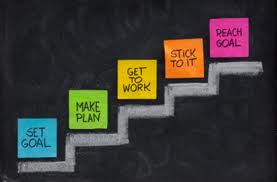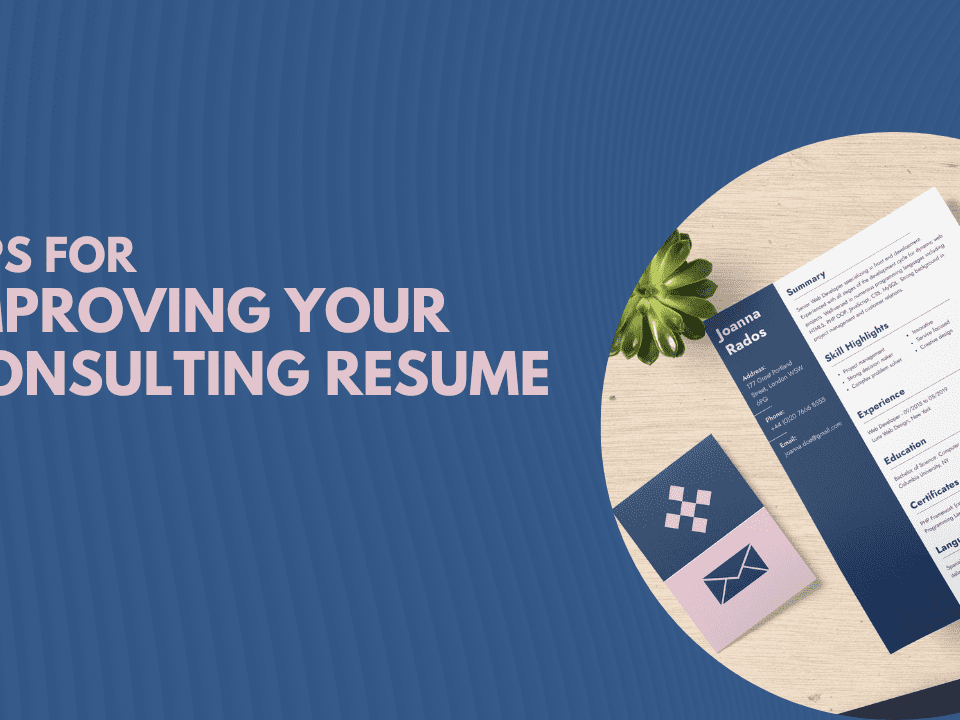
 As we welcome the summer of 2012 and wave goodbye to the first six months of the year, are you, like me, scratching your head to figure out where did the time go?
As we welcome the summer of 2012 and wave goodbye to the first six months of the year, are you, like me, scratching your head to figure out where did the time go?
The beginning of a new year always holds big promises and we make bold commitments to our lives both personal and professional.
So where are you with your career goals for 2023?
- Did you finally change careers and release yourself from a dead-end job?
- Did you push aside fear and start working on that new degree or certification?
- Did get up the courage to promote yourself more in your current work environment?
- Did you embrace personal branding and online identity to gain more visibility in your field?
Well, if you have answered “no” to any of the above questions, let’s recap a few tips about ongoing career management.
1) Develop a SMART career plan
True professional success and career mastery don’t just happen or fall into place because of good luck – it takes careful planning, diligence and commitment to become a well-respected, trusted authority in your industry and profession.
— Determine where you want to be in the next 12 – 36 months
— Conduct a gap analysis to identify what you need in terms of education, experience and advanced training/education to move up you to the next level
— Seek out mentors, key industry players and other successful professionals you admire and start connecting with them and building solid relationships.
— Write down your career aspirations on paper to make them real and personal to you; partner with a career coach to help keep you motivated and on track.
2) Identify and promote your strong personal brand
Your career success is directly tied to your ability to stand out from your peers and colleagues. There are several things that you do better than anyone else and you have to be able to communicate that to employers and recruiters. Your career/personal brand should clearly reflect and promote your areas of expertise and your unique promise of value.
— Develop a plan for own personal brand identity system that includes both online and offline strategies.
— Create and keep an updated LinkedIn profile and make sure it includes recommendations from previous employers and colleagues.
— Get creative and bring your personal brand and career reputation to life with a VisualCV.
— Compile a brief Google profile so that you are easily found when interested employers and recruiters want to learn more about you.
— Join and actively participate in company blogs, industry forum and professional online discussion – it is an excellent way to promote your knowledge and establish yourself as a thought leader.
3) Know your value proposition in 60 words or less
Your perceived value ROI to companies is directly related the type of salary you can command in your industry and the leverage you have in terms of raises, promotions and bonuses. However, if you don’t know and understand your true value, you cannot wait for someone else to figure it out for you.
— Be proactive in chronicling your career achievements every six to twelve months.
— Consider your direct impact and contributions to your company in terms of revenue growth, cost savings, image reputation, customer attraction, market expansion, technology integration and much more.
— Focus on quantifying your achievements as dollars, cents and percentages to really create a compelling story.
— Keep your resume updated and don’t wait until there is a crisis; make it a habit to maintain a portfolio of career marketing documents handy.
4) Get to networking and being in the mix
No matter how good you are, success in today’s corporate and work environment is a lot easier when you have a vibrant, active and growing professional and personal network.
— Volunteer for internal and external company events and take advantage of opportunities to represent your company at conferences, forums and trade shows.
— Join two or three professional and industry organizations that you can participate in on a regular basis.
— Think outside the box and seek out new relationships and partnerships with clients, vendors and strategic partners.
5) Accept that professional development is a lifelong exercise
I distinctly remember working with a client several years ago who was laid off from an industry that got through a complete transformation due to technology innovation. She was at a loss when determining her next career move because she had not done anything in 20 years to stay competitive, marketable or employable in her field.
— Pay attention to evolving trends in your industry and identify the major skills and/or new technologies that are important.
— Use annual association conferences and local business events as opportunities for informal education.
— Research and register for appropriate e-courses, training programs and professional certification classes that would directly benefit your career.




